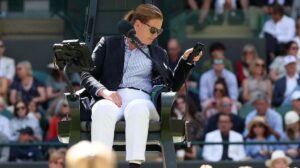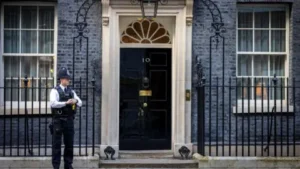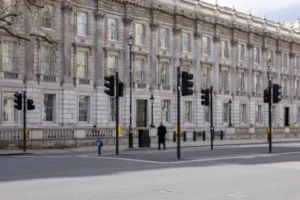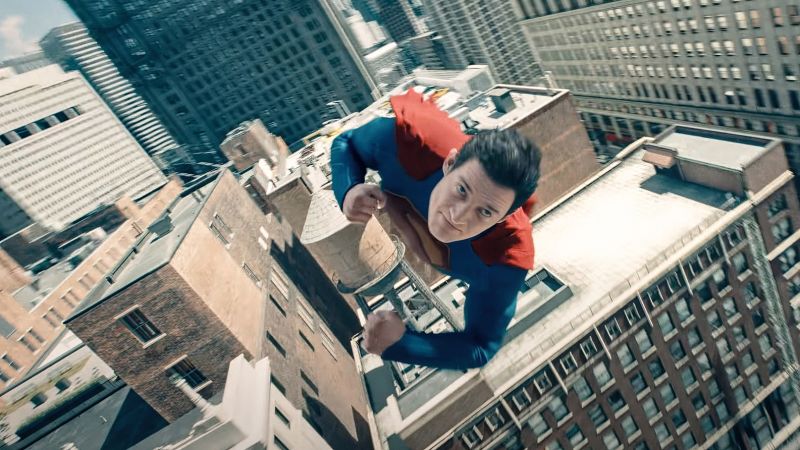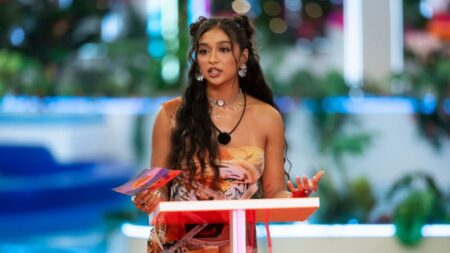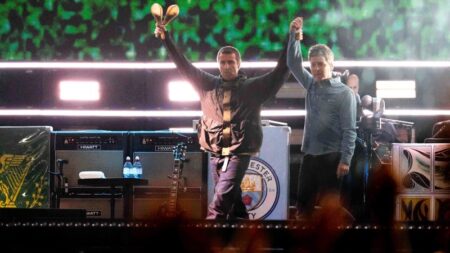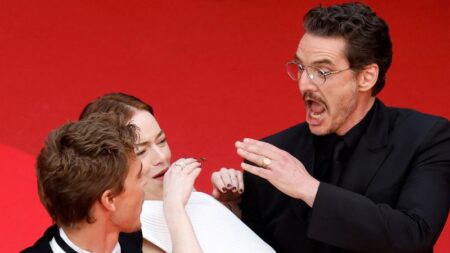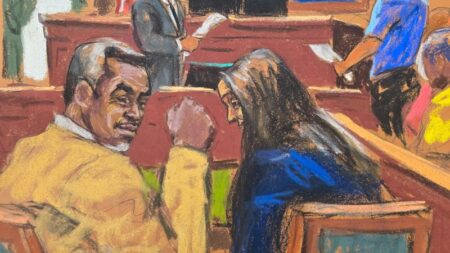James Gunn, the filmmaker behind the reimagining of “Superman,” enters interviews with a demeanor that reflects his grounded personality, preferring a cozy atmosphere over the trappings of Hollywood’s ego. Accompanied only by his wife and a publicist, Gunn’s humility stands in contrast to his place in the A-list echelon of Hollywood creators, marking a notable shift in how such interviews might typically unfold.
During the conversation, the topic of David Corenswet, the actor selected to don the iconic cape as the next Man of Steel, comes to the forefront. Gunn playfully admits having a bit of an ego regarding his ability to identify star potential in actors – a talent unmistakably evidenced by his previous collaboration with Chris Pratt in “Guardians of the Galaxy.” The filmmaker confidently asserts that Corenswet possesses the rare combination of acting prowess, comedic timing, and physical appeal reminiscent of Hollywood’s top stars, suggesting that he is poised for a meteoric rise that audiences have yet to recognize.
Despite his evident excitement about the project, Gunn articulates a palpable sense of pressure that accompanies the release of “Superman,” especially given his multifaceted role in its creation. He navigates the complexities of the film not just as its writer and director, but also as the co-CEO of DC Studios, the newly minted production entity responsible for reinvigorating one of cinema’s most beloved franchises. The stakes are significantly elevated as this film serves as a crucial launchpad for what Warner Bros. hopes to establish as a revitalized DC cinematic universe, showcasing characters like Supergirl and Batman.
Nevertheless, the commercial success of “Superman” remains paramount. Gunn reflects candidly on the nerves that surface in the lead-up to its July 11th opening. He mentions that his wife plays a significant role in providing support during these moments, advocating for a calm perspective. As he strives to embody a stoic mindset, he candidly shares his efforts to not become overly attached to either the optimistic or pessimistic extremes surrounding the film’s release.
In a revealing discussion about his motivations, Gunn emphasizes how his love for comics has been foundational to his journey in filmmaking. The vivid environments and heroic tales depicted within comics sparked his early literacy, allowing him to connect with storytelling from a young age. With this project, he aims to recreate the enchanting world that inspired his childhood, hoping to resonate with audiences across ages, from nostalgic adults to new, young viewers.
Gunn’s narrative approach with “Superman” plunges the character into contemporary conflicts, drawing parallels between the superhero’s alien origins and the societal tensions regarding identity and public perception prevalent in today’s world. With Lex Luthor, portrayed by Nicholas Hoult, serving as an antagonist, Gunn has crafted a timely commentary on corporate power dynamics and social manipulation mirroring the complexities we face in our modern existence. His depiction of Luthor as a ‘tech bro’ archetype aims to critique the overwhelming influence of corporations, challenging viewers to consider the impacts of such power in their own lives.
While Gunn candidly acknowledges the darker tones of previous Superman films, he affirms that his vision still retains lighthearted and charming moments fueled by comedic writing. Krypto, Superman’s mischievous canine companion, is one such addition—an element that harkens back to the whimsy typical of Gunn’s past works and has already garnered favorable early feedback from audiences.
The filmmaker also expresses a desire to further explore the iconic relationship between Superman and Batman, highlighting the potential for a more saturated and celebratory representation of friendship that has yet to span the silver screen in a meaningful way.
As the conversation wraps up, Gunn reflects on his aspirations for this passionate project. He labels “Superman” as the most challenging film he’s ever tackled, yet imbued with the immeasurable hope that it captures the essence of goodness in a world often fraught with negativity. “I hope it speaks to other people as much as it speaks to me,” he concludes, embodying the universal message that underlines the hero’s narrative journey—one that emphasizes integrity and positivity amid adversity.

